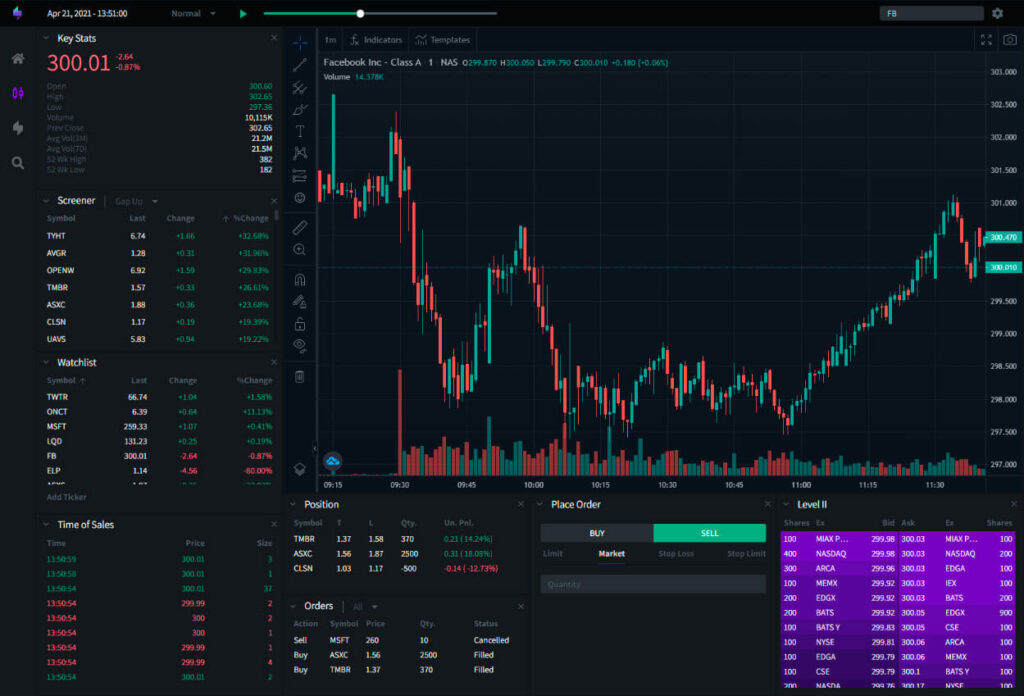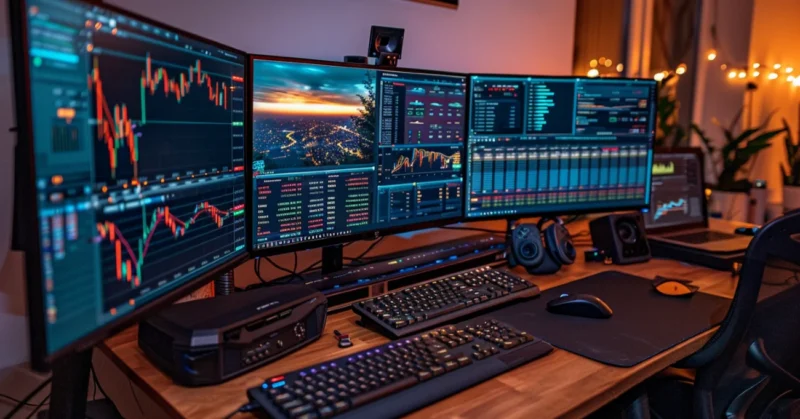In the fast-paced world of finance, the allure of immense wealth can draw aspiring traders into the realm of trading simulators, luring them with promises of expertise and riches. However, beneath the surface of endless virtual trades lies a truth that often goes unnoticed: these tools, while invaluable for honing skills and understanding market mechanics, are unlikely to fill your pockets with gold.
Trading simulators allow users to experiment without the risk of financial loss, fostering a deeper grasp of strategies, market analysis, and emotional resilience. Yet, as the thrill of practice lulls users into a false sense of security, it can become all too easy to forget that real-life trading demands more than mere simulation.
Transforming theoretical knowledge into practical success requires navigating a landscape fraught with uncertainty, real stakes, and the pressures that only come when actual money is on the line. Thus, while trading simulators may not be a ticket to wealth, they undoubtedly serve a crucial role in sharpening your mind for the rigorous journey ahead.
Understanding the Purpose of Trading Simulators

Trading simulators serve a multifaceted purpose that extends far beyond the allure of quick wealth. Imagine stepping into a virtual trading arena where the stakes are high yet consequences are non-existent—this is the essence of a trading simulator.
It allows aspiring traders to immerse themselves in the market’s ebb and flow without the risk of financial loss, offering a unique space to experiment with strategies and learn from mistakes. Tools like a free market replay tool further enhance this experience by allowing traders to revisit and analyze past market scenarios, providing deeper insights into their decisions and strategies. Here, one can explore the nuances of market dynamics, enhance decision-making skills, and grasp the intricacies of technical analysis.
However, while these simulators do sharpen a trader\’s acumen, they cannot replace the invaluable lessons learned through real-world trading experiences. In essence, they are tools for cognitive growth, empowering traders with knowledge rather than instant wealth
The Illusion of Instant Success in Trading

The allure of instant success in trading is an illusion that captures many aspiring investors; it glimmers like a mirage in the vast desert of financial markets. Countless stories abound of traders who seem to have struck gold overnight, but these tales often neglect the years of painstaking research, emotional endurance, and strategic experimentation that lie behind the glittering façade.
Newcomers, enticed by visions of quick riches, may dive headfirst into trading with dreams of immediate wealth only to find themselves adrift in a sea of volatility and uncertainty. They often overlook the reality that true mastery comes not from a series of lucky trades but from a deep understanding of market dynamics and meticulous practice, often facilitated by the very trading simulators they dismiss as futile. As such, the journey to success is not a sprint but a marathon—a gradual accumulation of insights and experience that builds resilience and acuity, nuanced qualities that no simulator can impart within the confines of its artificial confines.
Risk Management: Learning Beyond Profit and Loss

In the tumultuous sea of trading, mastering risk management transcends mere profit and loss; it embodies the art of navigating uncertainties with astute foresight. Think of it as the careful balance between ambition and caution, where every decision weighs not just on potential gains but also on the ramifications of losses.
This nuanced understanding fosters resilience. Consider a trader, faced with a sudden market downturn, who employs a simulator to explore various strategies and outcomes.
Each scenario unveils layers of insight about emotional control, strategic pivots, and the consequences of over-leverage. Trading simulators become not just tools for mock profits, but harbors of wisdom where one learns that success in markets thrives on comprehension, learned instinct, and most crucially, managing the unexpected.
Embracing this multifaceted approach cultivates a traders capability to thrive amid chaos, leading to smarter, more informed decision-making in real-time situations.
Conclusion
In conclusion, while trading simulators are often marketed as a pathway to wealth, they are better understood as powerful tools for enhancing one’s market knowledge and decision-making skills. They provide a safe environment to experiment with various strategies, analyze market conditions, and learn from mistakes without real financial risk.
Although success in trading ultimately requires a combination of experience, emotional resilience, and discipline, utilizing resources like a free market replay tool can significantly augment ones learning process. By approaching trading with the mindset of continuous improvement rather than a quick route to riches, aspiring traders can cultivate the intelligence and strategies necessary for long-term success in the ever-evolving financial landscape.


